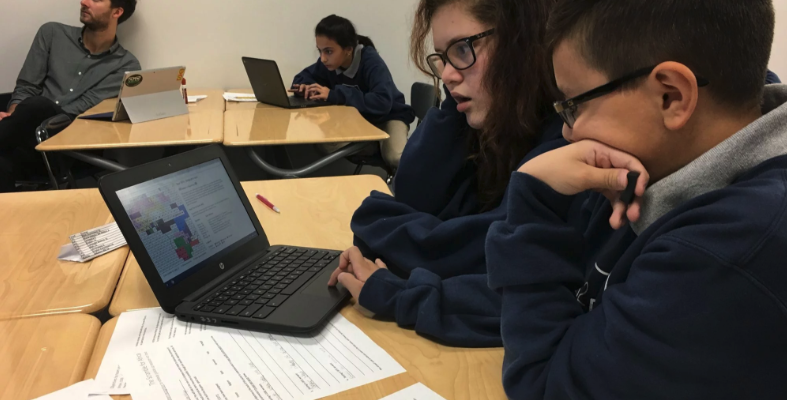Edutopia–The Flexibility of Computational Thinking
Three middle school projects—in English, math, and history—use computational thinking skills to address social justice topics.

Computational thinking (CT) is a set of skills students can leverage to tackle hard problems of all kinds using ideas from computer science. These skills include:
- Algorithmic thinking: using a well-defined series of steps to achieve a desired outcome
- Decomposition: approaching a complicated problem by focusing on one piece at a time
- Abstraction: representing a complicated system with a simple model
- Pattern recognition: analyzing data and using trends to inform solutions
CT can be used to address issues far beyond computer science, and projects with a social justice emphasis provide a platform for students to apply these skills to engaging, authentic learning opportunities. As Sydney Chaffee says in her TEDx talk on social justice in schools, “Authentic learning enables students to see and create connections in the world around them,” helping students understand why what they’re learning is vital.

